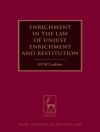Among the many important tools feminist legal theorists have given scholars is that of anti-essentialism: all women are not created equal, and privilege varies greatly by circumstances, particularly that of race and class. Yet at the same time, feminist legal theory tends to view men through an essentialist lens, in which men are created equal. The study of masculinities, inspired by feminist theory to explore the construction of manhood and masculinity, questions the real circumstances of men, not in order to deny men’s privilege but to explore in particular how privilege is constructed, and what price is paid for it.
In this groundbreaking work, feminist legal theorist Nancy E. Dowd exhorts readers to apply the anti-essentialist model—so dominant in feminist jurisprudence—to the study of masculinities. She demonstrates how men’s treatment by the law and society in general varies by race, economic position, sexuality, and other factors. She applies these insights to both boys and men, examining how masculinities analysis exposes both privilege and subordination. She examines men’s experience of fatherhood and sexual abuse, and boys’ experience in the contexts of education and juvenile justice. Ultimately, Dowd calls for a more inclusive feminist theory, which, by acknowledging the study of masculinities, can broaden our understanding of privilege and subordination.
Sobre o autor
Nancy E. Dowd is Emeritus Professor, University of Florida Levin College of Law, where she was a University Professor and Director of the Center on Children and Families. She is the author of multiple books, most recently, with Margaret Beale Spencer, Radical Brown: Keeping the Promise to America’s Children.












